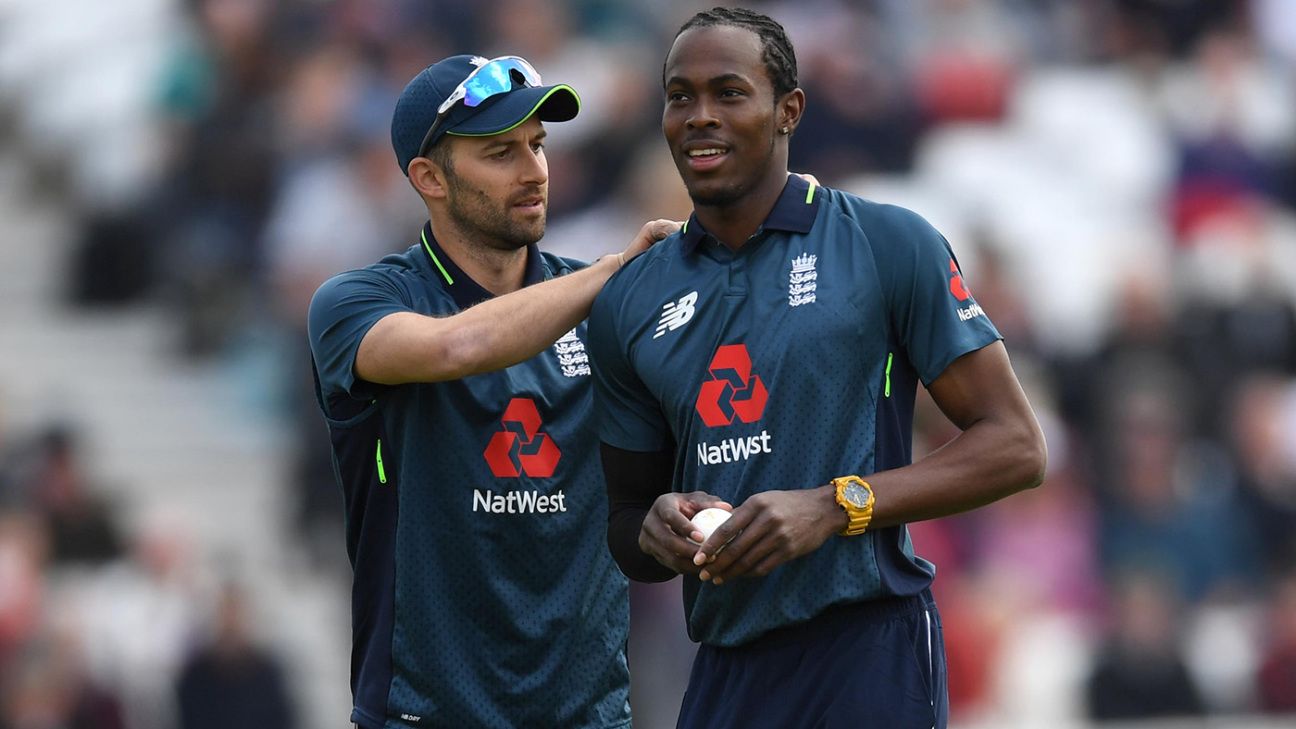
There are some things - flights, cups of tea and your heartbeat, for example - you want to find predictable.
And perhaps it is the same with squad announcements. Squad announcements for global tournaments, anyway.
Selectors have had four years to plan for such events. They have had four years to ensure that every player knows their role and every player knows what to expect from their team-mates. At this stage, squads should be settled and predictable.
England have achieved that pretty well. Yes, David Willey is unfortunate. Yes, Joe Denly will be disappointed. But, for the first time in many, many years, England are going into a World Cup with a relatively settled, well-balanced side that has a realistic chance of victory. The position that provoked most debate and discussion on Tuesday was that of reserve spin bowler. It's a detail, really. An important one, but nothing compared to what we have seen before.
Perhaps, to appreciate how smooth this process has been, it is worth comparing it to the chaos with which we have become accustomed. In 2015, for example, England sacked their captain, Alastair Cook, a few weeks before the tournament. Then, on its eve, they changed the new-ball attack (demoting Chris Woakes to first-change) and fiddled with the batting order (swapping Gary Ballance and James Taylor at 3 and 6). In the tournaments before that, it became customary for them to change their wicketkeeper (2007 and 2011) or opening partnership (1999) at the last minute. Indeed, in 1999, they dropped their captain (Adam Hollioake) and their opening batsman (Nick Knight) shortly before the tournament and prepared for a home event with a training camp in… Lahore. You could hardly make it up.
And, even if England did go into a tournament with their best side, there was usually some crisis (the Zimbabwe affair of 2003, for example) or late change of approach that threatened to derail their progress. There rarely had a chance to define plans or develop well-rehearsed strategies. In a format in which role definition and planning is so important, England have invariably gone into World Cups hoping it would all come together on the night. It rarely has done.
It doesn't feel like that this time. While the introduction of Jofra Archer has come at a late stage, anyone taken by surprise simply hasn't been paying attention. While England would, in an ideal world, like him to have played more than three ODIs - and, indeed, more than 17 List A matches - the experience he has of playing in high-profile, high-pressure T20 leagues suggests he has the talent and temperament to succeed. His range of skills - not least his well-controlled pace - are a huge asset to a team that, Mark Wood apart, can look a little pedestrian. They were, remember, thrashed for a six by Chris Gayle on average every 8.10 balls he faced in the recent series in the Caribbean. Archer's batting and fielding are also more than useful. He is British, he is eligible and he is very good. His is not, at this stage, a remotely controversial selection.
Nor is Liam Dawson. He is, quite simply, a more experienced, more reliable spin bowler than Denly. And while Denly is almost certainly a better batsman, Dawson's average of 45.33 in the Royal London Cup is proof that he's no mug either. Besides, the role essentially demands that the occupant can come into the side at short notice and fill the hole left by injury to either Moeen Ali or Adil Rashid. Dawson is a better fit for that specific job. Denly may console himself with the knowledge that he now has the opportunity to return to county cricket and score heavily in the Championship with a bid to securing a place in the Ashes. He is the man in possession of the No. 3 spot in the Test side, after all.
Willey could yet win a recall mid-tournament. While he is not officially on any reserve list, it stands to reason that he - and perhaps Chris Jordan - would be next in line should one of England's seamers suffer an injury. His left-arm variation, the swing he can generate with the new ball and the control he demonstrates at the death are all attractive qualities. But it was his ill-fortune to be competing for the new ball, in particular, with Archer, Wood and Woakes. Leaving him out was a tough decision, but it was also probably right.
Again, in an ideal world, England might have liked Dawson to have been with them throughout the Pakistan series. Or at least for the final couple of games, when it became apparent the selectors were not in total agreement over the suitability of Denly for the role. But at least Dawson was playing cricket rather than running drinks on for his colleagues, and it is not as if he is a stranger to either the environment or the players.
There have been other bumps on the road. The loss of Alex Hales - who may be remembered as the Pete Best of cricket if England go on to win the trophy (Denly may be remembered as the Jimmie Nicol) - might have destabilised some squads. Equally the introduction of Archer might have unsettled the bowlers and provoked reasonable concerns about talent pathways in both England and the Caribbean.
But, whatever feathers within the squad were ruffled by Archer's arrival have long since been patted back down - not least by evidence of his obvious ability and his amiable, equable nature - while Hales has simply been left behind. This team, like kids cramming ahead of important exams, no longer had time for the class joker. Damning though it sounds, his absence has hardly been mentioned in recent times.
So England go into this tournament confident, settled and united. Their squad has bite with the ball, punch with the bat and balance through the depth provided by the all-rounders. This may well be the best World Cup squad they have ever assembled; it certainly represents their best chance to win in many years.















 Phone: (800) 737. 6040
Phone: (800) 737. 6040 Fax: (800) 825 5558
Fax: (800) 825 5558 Website:
Website:  Email:
Email: 






